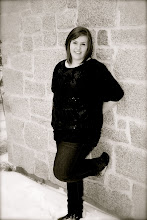How many television sets were sold in 1950? How did television change America? What other factors changed America in the 50s?
· There were more then 4 million sold and they provided a new source of entertainment.
· When people expanded and moved out to the suburbs it created a large demand for cars. And with cars came highways, fast food and drive-ins.
What three important novels were published in the 50s? What did they do or promote?
· The Catcher in the Rye – was written by J.D. Salinger. It was about the alienation of the youth.
· The Naked and the Dead – was written by Norman Mailer and it presented us with the uncomfortable views of soldiers and what they had to go through.
· On the Road – it was a book that went against the ideas of conformity in America.
What was the Iron Curtain?
· It was what separated the Soviets and the Europeans
What was the Truman Doctrine about?
· Truman helping Turkey and Greece so they wouldn’t be controlled by the Soviets.
What were the “witch hunts” of the 1950s? Why did this happen?
· This is when people were scared of communism and the government help make people even more scared and said that the communists were spying on you, and the Witch hunts was just the hunting of communists.
Who was Klaus Fuchs? Describe the Rosenberg case?
· He leaked Atomic bomb information to Soviet Russia. Rosenberg wouldn’t talk about the secrets they gave away so the killed him.
What was the Korean War about? Why was MacArthur removed from service?
· North Korea (supported by the communists) invaded South Korea (supported by the U.S.). They removed MacArthur because he thought if the U.S. were going to contain communism that we would need to kill china. And MacArthur had a disagreement with Truman.
What was important about Brown v. Board of Education? How did Eisenhower have to enforce it’s ruling in Little Rock?
· His daughter wasn’t allowed to go to the white public schools because she was black, so Eisenhower sent paratroopers to protect her.
Discuss the importance of the Montgomery Bus Strike.
· This was when Rosa Parks wouldn’t move to the back of the bus, this caused a lot of extra tension between the whites and blacks. She was arrested and then Martin Luther King Jr. voiced his opinions and asked the blacks to stand up for themselves and to start boycotting buses. (Montgomery’s transportation specifically)
Discuss the beginning of the space race.
· This was the launch of Sputnik (mans first artificial satellite), so Soviets started leading in the race and beating the U.S. so the U.S. responded by increasing American education in the field of rocketry. The race was on now to be the first to get to the moon.
